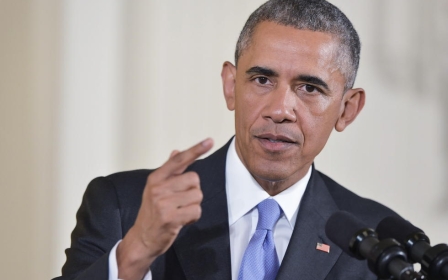Eastern European countries reject EU refugee quotas

Eastern Europe has rejected EU refugee quotas saying that there was a need to “keep control” over their own borders.
Representatives from Czech Republic, Hungary, Poland, and Slovakia met with the German Foreign Minister Walter Steinmeier on Friday, but failed to convince them to accept EU plans for a distribution of 160,000 refugees around the continent.
"We're convinced that as countries we should keep control over the number of those we are able to accept," said Czech Foreign Minister Lubomir Zaoralek, following the meeting.
The UN refugee agency warned on Friday that more would be needed in order to relieve pressure on the EU’s frontline states, saying that 200,000 places would be needed in the EU’s relocation scheme by the end of 2016.
"The relocation scheme can only succeed if it is accompanied by large-scale emergency reception, assistance and registration efforts in the countries most impacted by arrivals, particularly Greece, Hungary and Italy," said UNHCR spokesman William Spindler.
Hungary’s reputation for taking a hardline stance on the EU migrant crisis has been further boosted by revelations that the government is using prisoners to construct a fence at its border with Serbia.
Around 350 prisoners are involved in the construction, supervised by 65 prison guards, the prison service told Reuters.
"The number of prisoners working varies depending on the needs in the current phase of construction," a prison service spokeswoman said.
She added that the prisoners had volunteered for the work and were paid 33,000 forints ($117) a month, minus a daily intermediary fee paid to the prison.
Hungary’s defence minister resigned earlier in the week after Prime Minister Viktor Orban expressed dissatisfaction with the lack of progress made on constructing the 175km fence.
Orban has been accused of courting nationalist and xenophobic sentiment in Hungary, possibly in order to undercut the growing popularity of the far-right Jobbik party who are current the third biggest party in parliament.
Footage emerged on Friday of refugees in a holding centre being treated like “animals in a pen” as police threw food at them:
"It was inhumane and it really speaks for these people that they didn't fight over the food despite being clearly very hungry," said Austrian volunteer Michaela Spritzendorfer, who filmed the scenes at Roszke camp near the Serbian border.
Peter Bouckaert, emergencies director at Human Rights Watch, pointed out that the refugees were being held in “filthy, overcrowded conditions, hungry, and lacking medical care.”
“The Hungarian authorities have an obligation to ensure that migrants and asylum seekers are held in humane conditions and that their rights are respected.”
It also comes of the back of the controversy over Hungarian journalist Petra Laszlo’s tripping and kicking of refugees at a refugee registration camp, footage of which sparked outrage on social media and led to Laszlo’s firing.
Laszlo, who worked for the N1TV channel - run by Jobbik - later claimed that she was “defending herself”.
7,600 refugees enter Macedonia
The extent of the crisis was underlined on Friday as Macedonia's state news agency revealed that 7,600 migrants had entered the country in just 12 hours overnight.
"Around 7,600 migrants, mostly from Syria, entered Macedonia between 6pm Thursday and 6am today," Alexandra Krause of the UNHCR refugee agency told a Macedonian news agency.
"We have information from our Greek colleagues that more migrants are travelling towards the Macedonian border in buses," she added.
On Friday, Macedonia’s Foreign Minister Nikola Poposki said his country was mulling the creation of a border fence to stem the number of refugees coming from outside the EU.
"We too will need some kind of physical defence to reduce illegal border crossing... Either soldiers or a fence or a combination of the two," Poposki said.
"There is no European consensus on how we can handle this question," he added.
Stay informed with MEE's newsletters
Sign up to get the latest alerts, insights and analysis, starting with Turkey Unpacked
Middle East Eye delivers independent and unrivalled coverage and analysis of the Middle East, North Africa and beyond. To learn more about republishing this content and the associated fees, please fill out this form. More about MEE can be found here.




